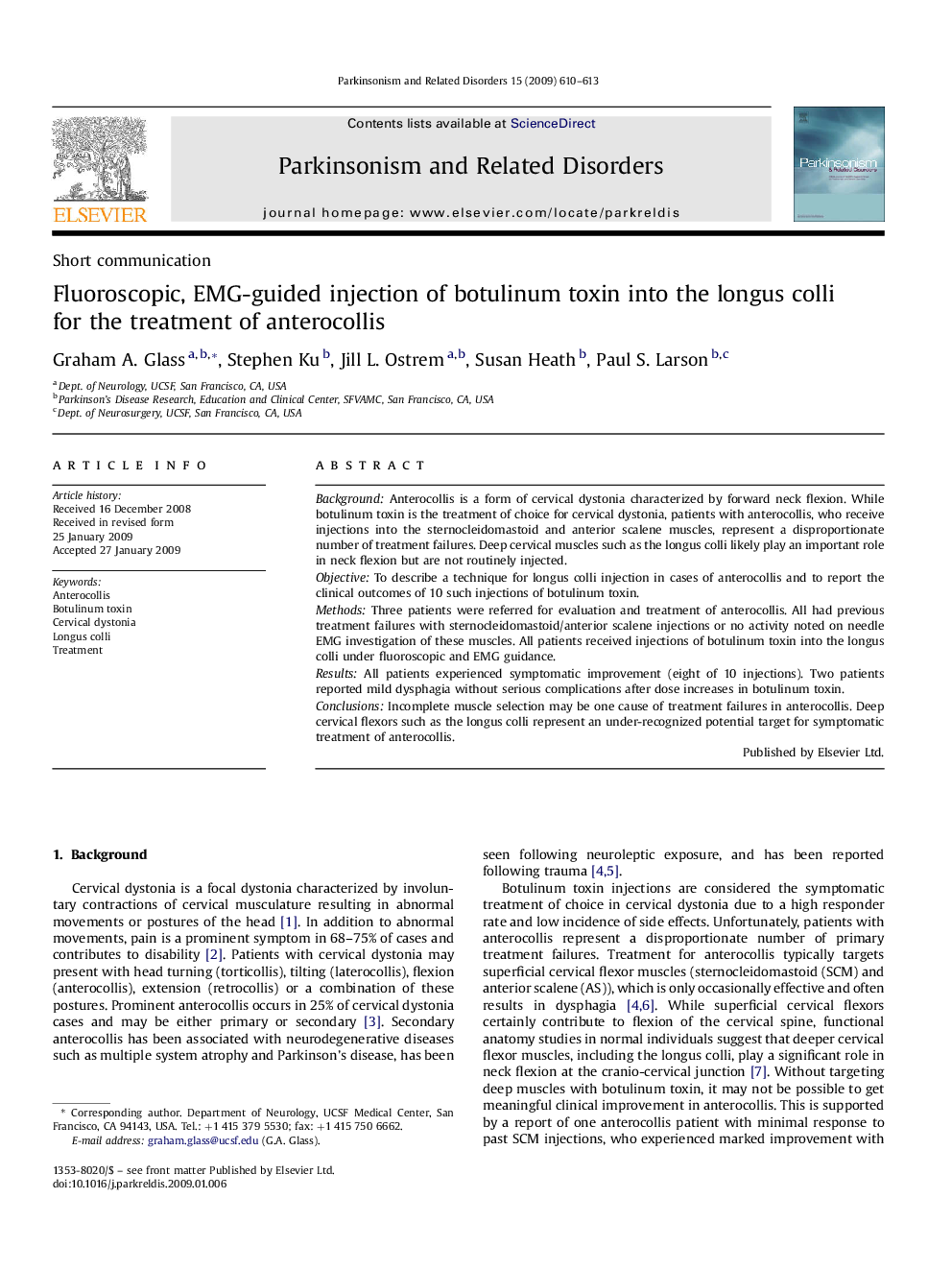| Article ID | Journal | Published Year | Pages | File Type |
|---|---|---|---|---|
| 1921699 | Parkinsonism & Related Disorders | 2009 | 4 Pages |
BackgroundAnterocollis is a form of cervical dystonia characterized by forward neck flexion. While botulinum toxin is the treatment of choice for cervical dystonia, patients with anterocollis, who receive injections into the sternocleidomastoid and anterior scalene muscles, represent a disproportionate number of treatment failures. Deep cervical muscles such as the longus colli likely play an important role in neck flexion but are not routinely injected.ObjectiveTo describe a technique for longus colli injection in cases of anterocollis and to report the clinical outcomes of 10 such injections of botulinum toxin.MethodsThree patients were referred for evaluation and treatment of anterocollis. All had previous treatment failures with sternocleidomastoid/anterior scalene injections or no activity noted on needle EMG investigation of these muscles. All patients received injections of botulinum toxin into the longus colli under fluoroscopic and EMG guidance.ResultsAll patients experienced symptomatic improvement (eight of 10 injections). Two patients reported mild dysphagia without serious complications after dose increases in botulinum toxin.ConclusionsIncomplete muscle selection may be one cause of treatment failures in anterocollis. Deep cervical flexors such as the longus colli represent an under-recognized potential target for symptomatic treatment of anterocollis.
